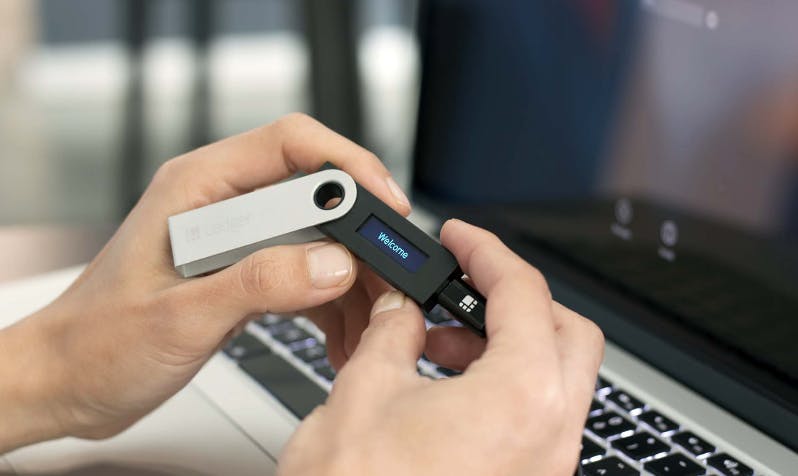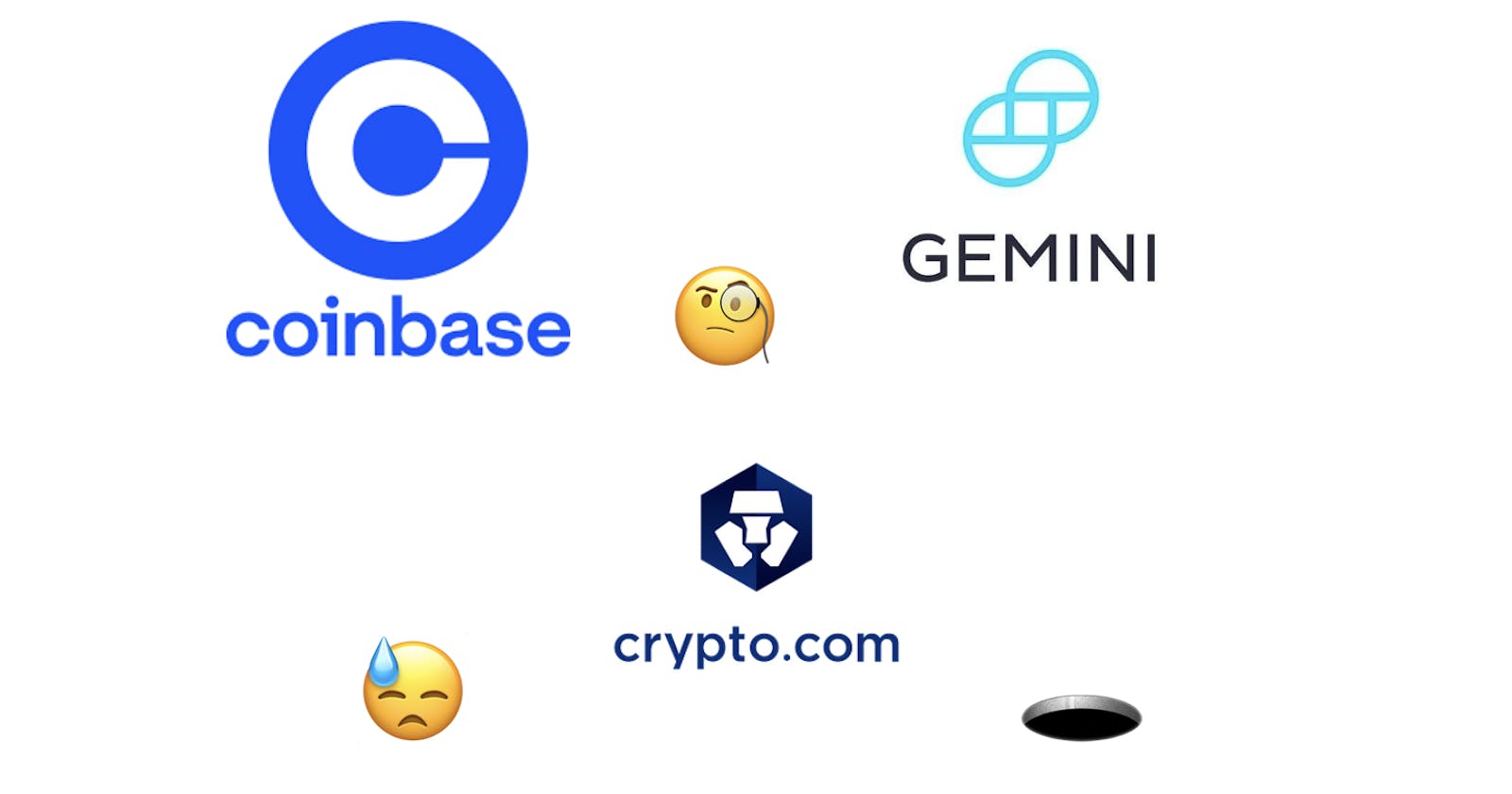Your Crypto is not Safe on Coinbase!
Transfer your Crypto to a Cold Storage Wallet for Maximum Security.
In this article, I explain why your crypto is not safe on centralized exchanges and why cold storage wallets are the best solution for securing your hard earned crypto!
Why Centralized Exchanges aren't Safe:
The overwhelming majority of people purchase & store their coins on centralized exchanges, the most popular being Coinbase & Gemini. On these exchanges, your coins are held in what is called a custodial wallet. When coins are held in a custodial wallet, the owner of that wallet (i.e. the centralized exchange) manages your private keys.
Since these companies manage your private keys, you don't have complete control over what happens to your crypto. Holding your crypto on a centralized exchange defeats the purpose of storing your wealth in a decentralized manner. You are now entrusting a 3rd party to secure your funds for you, which is what you were trying to avoid in the first place!
So what could go wrong? Below is a list with examples:
- Government regulation forces the centralized exchange to halt the transfer of crypto to peoples accounts. [You loose the ability to move your funds]. 'Frozen' Bitcoin Tied to Canadian Protests Lands at Coinbase, Crypto.Com
- The centralized exchange goes bankrupt and seizes it's users funds to pay for its debt. [You loose your funds]. Coinbase earnings were bad. Worse still, the crypto exchange is now warning that bankruptcy could wipe out user funds
- The centralized exchange gets hacked. [You loose some, if not all of your funds]. The 10 Biggest Crypto Exchange Hacks In History
Centralized exchanges are a great place to start your crypto journey because they offer familiar interfaces that are easy to learn. However, once you own an amount of crypto that would be upsetting to lose, you should transfer your funds out of the centralized exchange. The following occurrences, listed above, will continue to happen. World governments are only becoming more authoritative & the world is plunging deeper into a recession. Now is the time to get serious about how you are securing your crypto.
Cold Storage Wallets are the Safest Option:
The safest way to secure your crypto is through the use of a cold storage wallet. A cold storage wallet is a type of non-custodial wallet that gives you complete control over your private keys. You are the only person that will know your private keys.
Cold storage wallets generally look like a USB stick with a screen and buttons. The device gets plugged into your computer where it can interact with blockchains through an app provided by the company that makes the wallet. The private keys to your accounts are stored on the device & never connect to the internet even when making transactions through the app! Transactions are signed offline on the device and then sent to the blockchain for confirmation.
 In order to gain access, wallets will have a pin code that can be entered into the device (4 - 8 digits long - created during setup). If the wallet's pin code were ever forgotten or if the device was lost or destroyed, your accounts could still be recovered through the use of a recovery phrase (12 - 24 words long - generated during setup). It can then be entered into any new wallet where it will cryptographically re-create your old private keys.
In order to gain access, wallets will have a pin code that can be entered into the device (4 - 8 digits long - created during setup). If the wallet's pin code were ever forgotten or if the device was lost or destroyed, your accounts could still be recovered through the use of a recovery phrase (12 - 24 words long - generated during setup). It can then be entered into any new wallet where it will cryptographically re-create your old private keys.
With a cold storage wallet, you are in complete control of who has access to your private keys & hence your crypto. The only risk is in losing your recovery phrase & wallet at the same time. If this happens, you would not be able to access your funds. I do believe that the increase in personal responsibility is well worth the reward of maximum control & security.
Best Cold Storage Wallets:
There are many cold storage wallet manufactures, two that get fantastic reviews are Trezor & Ledger. Both companies offer a large selection of wallets, some models have touch screens while others offer more storage. Between the two, you will find a wallet that fits your needs & price range. Generally, cold storage wallets cost anywhere between $50 - $300 USD. Below is a setup I would recommend if you're not sure what to buy!
Cold Storage Wallet:
- Ledger Nano S Plus - $79.00 USD
Recovery Phrase Storage Device:
- CRYO Crypto Seed Storage - $49.99 USD

